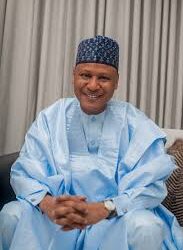After the Federal Government deregulated the downstream sector of the oil industry on March 19, consumers of Premium Motor Spirit, popularly called petrol, have paid an additional sum of over N76.5bn for the purchase of the commodity.
In March when the Petroleum Products Pricing Regulatory Agency announced the commencement of a deregulated downstream oil sector, the average cost of petrol at filling stations was N125/litre.
Since then the price of the commodity had been fluctuating, moving upwards in most instances.
It, however, recorded marginal reductions in April and June this year, when it was sold at about N123.5/litre.
In May, the pump price was N125/litre but in July, August and September, it increased and traded at average rates of N143/litre, N149/litre and N158/litre respectively.
When compared to the N125/litre cost of petrol in March when the downstream sector was deregulated, consumers paid extra N18, N24 and N33 for petrol in July, August and September respectively.
When compared to the N125/litre cost of petrol in March when the downstream sector was deregulated, consumers paid extra N18, N24 and N33 for petrol in July, August and September respectively.
Findings from the most recent monthly operations report of the Nigerian National Petroleum Corporation, which was for July 2020, showed that petrol supply and consumption across the country was 1.02 billion litres in that month.
The NNPC is currently the major importer of PMS into Nigeria and has maintained this position for more than two years.
Going by the 1.02 billion litres monthly consumption figure and the N18 that was paid extra for petrol in July after the deregulation of the downstream oil sector, it means that a total of N18.36bn was paid extra by consumers in July.
Similarly, using the 1.02 billion litres monthly consumption volume, users of PMS made extra payments of N24.48bn and N33.66bn in August and September respectively.
A summation of the payments made in the three-month period showed that consumers of petrol had paid an extra sum of about N76.5bn for the commodity after the downstream arm of the oil sector was deregulated.
Oil marketers had continued to dispense petrol at an average price of N158/litre, which the commodity sold for in September, as the PPPRA had not issued any adjustment in either ex-depot price or pump price.
The pricing regulator had been controlling the cost of the commodity through the provision of guiding price bands as well as ex-depot prices that were released through the Pipelines Product Marketing Company.
But up till October 10, officials of the PPPRA could not confirm if there would be any adjustment in PMS price for the month of October.
This, however, was despite the drop in crude oil prices in the preceding month, as the global cost of crude remained a major factor that determined the local cost of petrol at filling stations.
In September, the PPPRA’s Executive Secretary, Abdulkadir Saidu, told journalists that going forward, petrol price would be determined by the forces of demand and supply and the international cost of crude oil.
He noted that the role of the agency would be to ensure that oil marketers did not profiteer, as every petrol dealer was henceforth free to source for the product and fix their prices.
“This, however, must be in accordance with our code of conduct because as the regulator, it is our duty to protect the consumer and operators must abide by our codes,” Saidu stated.
The PPPRA boss also confirmed that petrol importation into Nigeria was solely done by the PPMC, a subsidiary of the NNPC.
Saidu said the price of petrol was also dependent on where the importer sourced the product from, adding that the cost of the commodity had been rising due to this.









